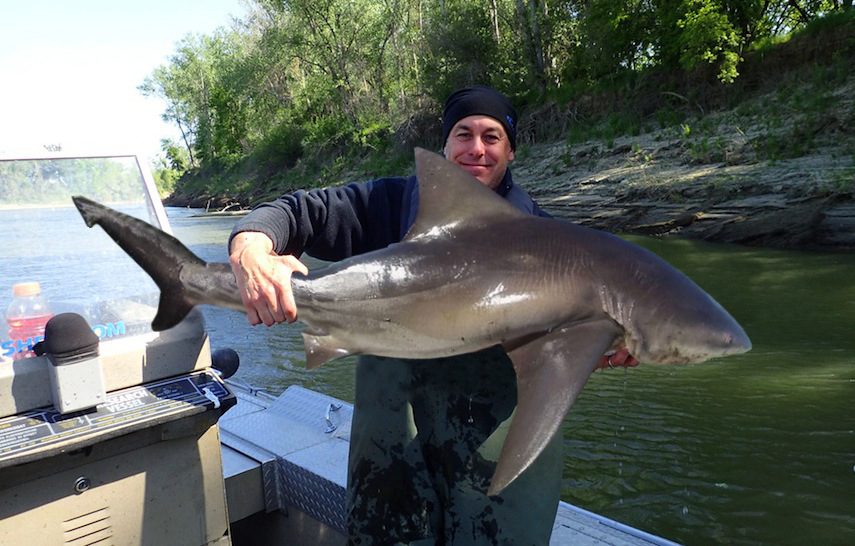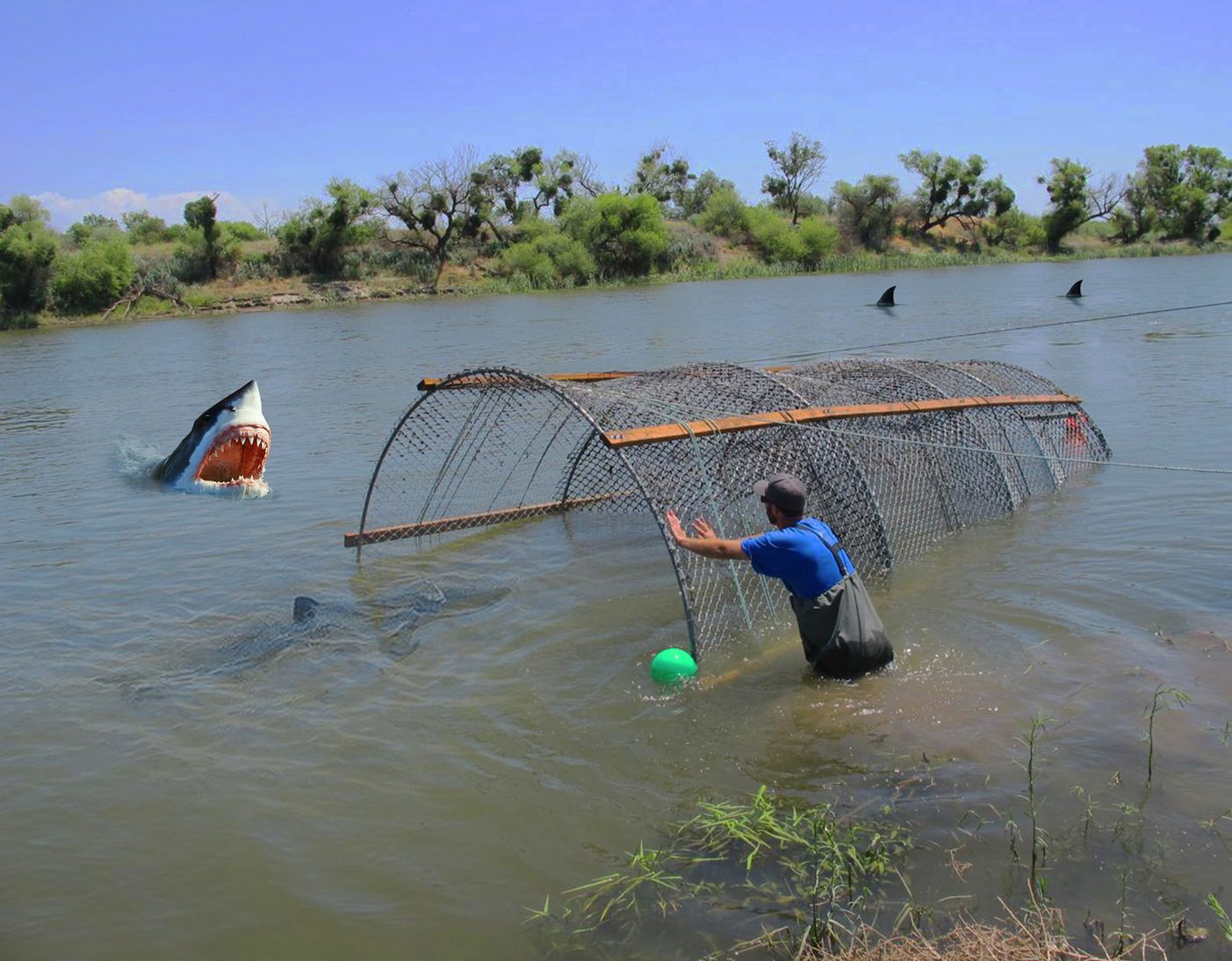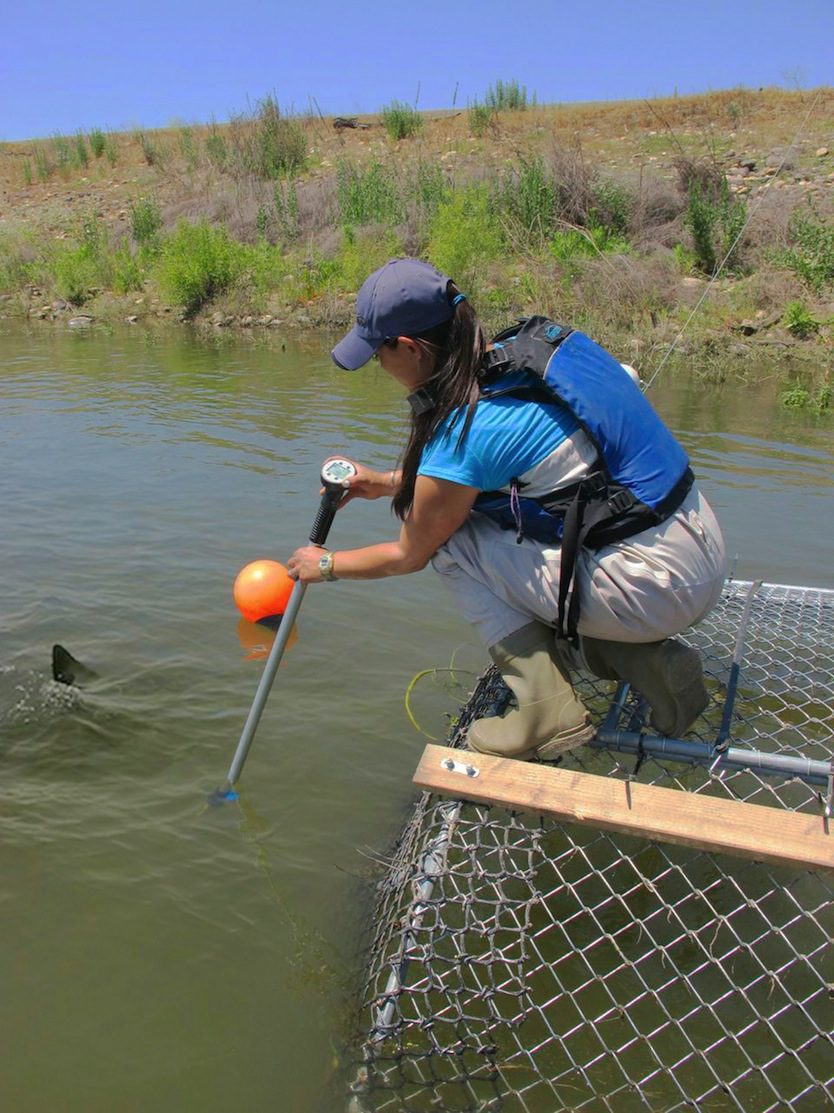Friday March 31, 2017

In honor of April Fool’s Day tomorrow, we wanted to share our spoofy take on salmon predator control. While we thought our tongue-in-cheek tone and use of Photoshop were apparent, we actually did get a few calls about the post last year. So just for the record, this is definitely fake news – engineered freshwater super sharks are, sadly, just a figment of our overactive imaginations.
When it comes to relieving freshwater environments of invasive species, many scientists are staunch advocates of introducing additional new species as a means of bio-control. It appears that a new innovation may hold some hope for California’s highly invaded Bay-Delta ecosystem: freshwater super sharks. Secretly bred by military contractors somewhere outside Las Vegas, these engineered elasmobranchs were intended to serve as search-and-destroy weapons to clear dangerous waterways of threats to military personnel. However, the program ended up producing a strain of sharks that hones in on fish targets measuring 12 to 36 inches in length with distinct lateral lines. Government scientists believe that inbreeding is responsible for the unintended outcome of this captive breeding and rearing program.
When California agencies learned of this new potential super-striper predator, they attempted to suppress the research and threatened to deny the military future collecting permits to supplement other experimental breeding programs. While military sources deny that such a super-predator program exists, managers in the Columbia Basin have caught wind of the research and are clamoring for a strain that will target the most voracious salmon-eating sea lions. They point to their success with simple, fast, and effective solutions to control fish predation throughout the Columbia Basin as evidence that they can effectively implement and manage a super-predator program for predator control.

When the news of these salmon predator predators spread to California congressional representatives, they quickly introduced bill H.R.0401 titled Save our Salmon, which seeks to release 800,000 super predators in the state’s waters (one for each adult striped bass, just to makes sure). The bill is still making its way through the legislature, and one proposed amendment calls for an effort to breed a vegetarian varietal of shark to attack the water hyacinth currently infesting the Central Valley. However, a few of the experimental sharks have reportedly been released into a handful of California lakes and rivers in hopes of promoting a recreational freshwater shark fishery. As strong proponents of aquatic recreational activities, FISHBIO’s FABLAB is already fabricating a prototype freshwater shark cage to help the public engage with these majestic creatures. We are currently seeking volunteers to test out our first model. With any luck, these freshwater super sharks will be coming soon to a waterway near you. If you find today’s story confusing or distressing, however, experts advise consulting a calendar as the best means to relieve your discomfort.

